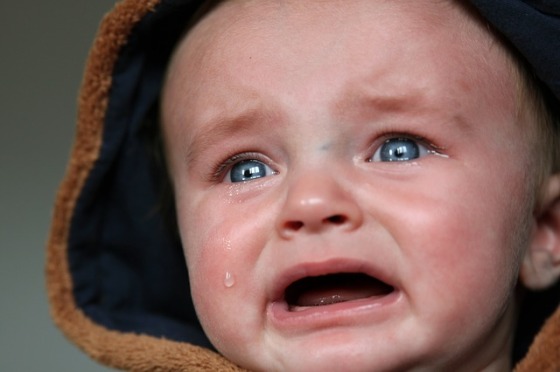Kevin Bean, funeral director and certified celebrant, will be one of the first people to admit that grief and mourning are perfectly natural responses to any significant loss, especially the loss of a beloved friend or family member. He is also a strong advocate in allowing people to grieve however is best for them, as grief is an intensely emotional and personal process that, by and large, has no objective right or wrong way about it.

Is your grieving process normal or abnormal?
There is, however, a difference between “normal” grief and complicated or “abnormal” grief. While individuals who are grieving in ways that aren’t considered normal are still not wrong in their feelings or expressions, complicated grief may come with further unique, specific needs that are beyond those of normal grief. Because of this, those suffering from complicated grief may find that the expected comfort and support available to them are simply not enough to ease their pain.
To further spread awareness of the unique qualities and needs of complicated grief, Kevin Bean, funeral director and experienced grief supporter, offers the following look into what is normal and what is not when it comes to grieving.
What is Grief?

Grief is an emotional response to a significant loss.
Grief, explains Bean, is defined as the internal emotional response that a bereaved individual has in response to suffering a significant enough loss in their life. It can be separated into the following specific components:
- Emotional aspects such as sadness, anger, and apathy
- Physical aspects such as lethargy and weakness
- Mental aspects such as confusion, forgetfulness, and lack of focus
- Behavioral aspects such as abandonment of once pleasurable activities
- Spiritual aspects such as a questioning of faith or a search for meaning
- Social aspects such as self-imposed isolation or increased dependence on others
“Those who have dealt with grief often describe it as a feeling of heaviness that just doesn’t lift,” Kevin Bean, funeral director, reports. “When pronounced enough, it can even manifest symptoms resembling a physical illness.”
What is Normal Grief?

“Grief represents a loss that we can never truly replace or regain.”
For the majority of individuals experiencing grief, the manifestations are perfectly normal. The key factor of normal grief, says Bean, is that as time goes on and the individual becomes more adjusted to their loss, the repercussions of grief begin to lessen. With support and introspection, the individual is able to eventually move through the common phases and tasks of the grieving process and finally put it behind them.
“There is no real recovery from grief,” explains Kevin Bean, “because grief represents a loss that we can never truly replace or regain. However, with normal grief, the major disruptive symptoms can essentially dissipate. We are changed people after dealing with our grief, but our lives can, for the most part, go back to normal, even if we must change our personal definition of ‘normal’ to include this loss.”
What Makes Grief Abnormal?

Did your grief come on suddenly, with no warning?
Abnormal or complicated grief typically occurs in less than a quarter of all mourners, according to Kevin Bean. For these individuals, however, their grief manifests in such a way as to require special considerations when it comes to comfort and support.
Abnormal grief can be broken down into several distinct categories depending on the circumstances surrounding the grief. These categories are as follows:
- Sudden Grief – “This type of grief typically occurs when the loss involved happens very suddenly and without much or any prior warning,” Kevin Bean, funeral director, explains. “If a loved one dies in an unforeseen accident, for example, we may experience sudden grief. This type of grief may lead to exaggerated reactions or even post-traumatic stress disorder.”
- Delayed Grief – “This is sort of the opposite of sudden grief,” says Bean, “and occurs when an individual postpones their feelings of bereavement for any reason. This is usually intentional on some level and most commonly occurs when we know we simply cannot deal with the grieving process properly, such as if other current life events are draining our emotional energy too much. When delayed grief does finally hit, it may manifest as normal grief or one of these other forms of complicated grief.”
- Chronic Grief – “This type of grief usually results from our inability, for whatever reason, to properly cope with our emotions surrounding a loss,” Kevin Bean, funeral director, explains. “With chronic grief, the individual typically has trouble finding any sort of closure or returning to their regular day-to-day activities for an extended length of time. As there is no ‘proper’ timetable for grief, though, this type of grief can be hard to discern.”
- Exaggerated Grief – “This type of grief, for whatever reason, is more intense than normal,” says Kevin Bean, funeral director. “With exaggerated grief, the bereaved individual may experience such reactions as delinquent behavior, regular nightmares, thoughts of suicide, and the onset of new phobias.”
- Disenfranchised Grief – “With this type of grief, a conflict with the individual’s feelings and society’s expectations is the root cause of complication,” Kevin Bean explains. “The grieving individual feels as if they cannot openly acknowledge their grief or that, if they do, their loss will not be considered ‘real.’ Examples include those grieving over the loss of a homosexual partner, a miscarried child, and so on.”

Whether it’s normal or abnormal, you don’t have to process your grief alone.
Those suffering from a complicated form of grief may wish to seek additional professional support for their feelings if they recognize that their grief is abnormal. “No matter the form of grief, though,” says Kevin Bean, funeral director and celebrant, “the important thing to remember is that you yourself are normal and your feelings are valid, no matter what form they may take.”







